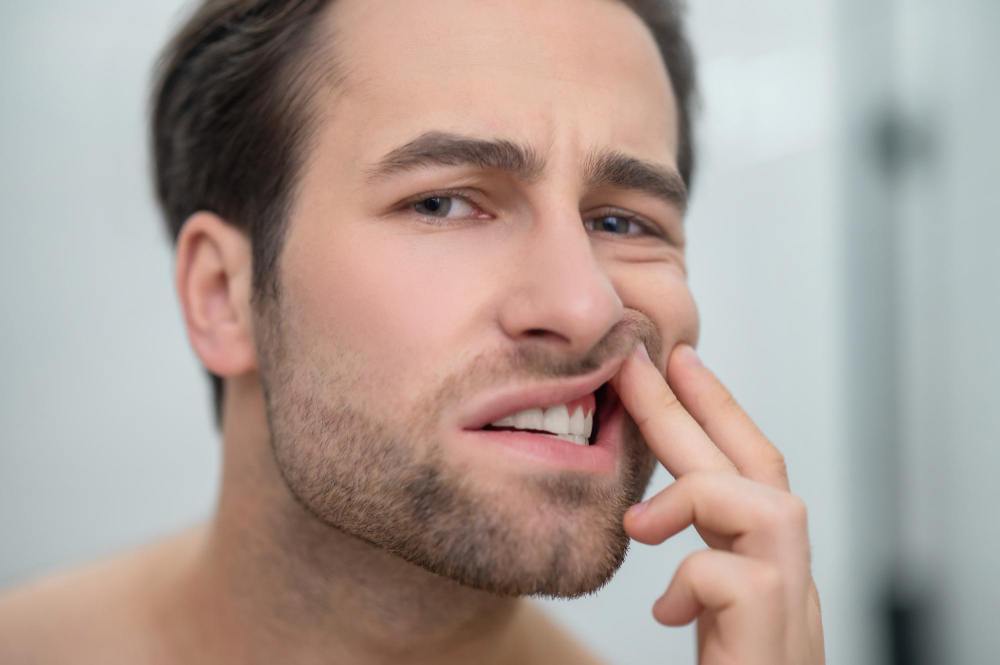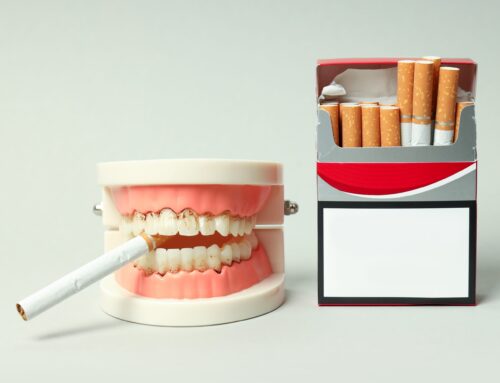Oral ulcers and cancer sores are a common condition that affects millions of people worldwide. Although they may appear similar, there are significant differences between the two. In this article, we will discuss the causes, symptoms, and treatment of oral ulcers and cancer sores, as explained by Dr. Fathima Farsana, a dentist at Haddad Medical and Dental Centre.
What are Oral Ulcers?
They, also known as canker sores, are painful, round, or oval sores that develop inside the mouth, including the tongue, cheeks, and lips. They are usually white or yellowish in the center and have a red border. Although they are not contagious, oral ulcers can be quite painful and may interfere with eating, drinking, and speaking.
What Causes Oral Ulcers?
The exact cause of is unknown, but they are believed to be related to a variety of factors, including:
- Trauma: Accidentally biting the inside of the cheek or tongue, or brushing too hard.
- Stress: Emotional stress or anxiety can weaken the immune system and make it more susceptible to oral ulcers.
- Allergies: Certain foods, such as nuts, shellfish, and citrus fruits.
- Hormonal changes: Women may be more prone to developing oral ulcers during their menstrual cycle.
- Vitamin deficiencies such as B-12, zinc, and folic acid.
What are Cancer Sores?
Cancer sores, also known as oral cancer or mouth cancer, are a serious condition that requires immediate medical attention. Unlike oral ulcers, cancer sores can be cancerous and can lead to significant health complications.
What Causes Cancer Sores?
The most common causes of cancer sores include:
- Tobacco use: Smoking or chewing tobacco can increase the risk of developing cancer sores.
- Alcohol consumption: Drinking alcohol excessively can also increase the risk of developing cancer sores.
- Human Papillomavirus (HPV): This sexually transmitted infection is a significant risk factor for oral cancer.
- Weak immune system: People with weakened immune systems, such as those with HIV/AIDS or who have undergone an organ transplant, are at higher risk of developing oral cancer.
- Sun exposure: Prolonged exposure to the sun can increase the risk of developing cancer sores on the lips.
Symptoms of Oral Ulcers and Cancer Sores
The symptoms can be quite similar. They may include:
- Pain or discomfort in the mouth
- Swollen or tender lymph nodes
- Difficulty swallowing or speaking
- White or red patches in the mouth
- Persistent bad breath
- Sores that do not heal
What are the treatment options?
The treatment depends on the severity of the condition. Mild cases of oral ulcers usually heal on their own within a week or two, while more severe cases may require prescription medication or topical ointments.
Cancer sores, on the other hand, require immediate medical attention. Treatment may include surgery, radiation therapy, or chemotherapy, depending on the stage of the cancer.
Prevention tips
While it may not be possible to prevent all cases of oral ulcers and cancer sores, there are several steps people can take to reduce their risk, including:
- Avoiding tobacco and excessive alcohol consumption
- Practicing good oral hygiene
- Eating a balanced
Make an appointment with Haddad Clinic right now to have your oral health checked.







Leave A Comment